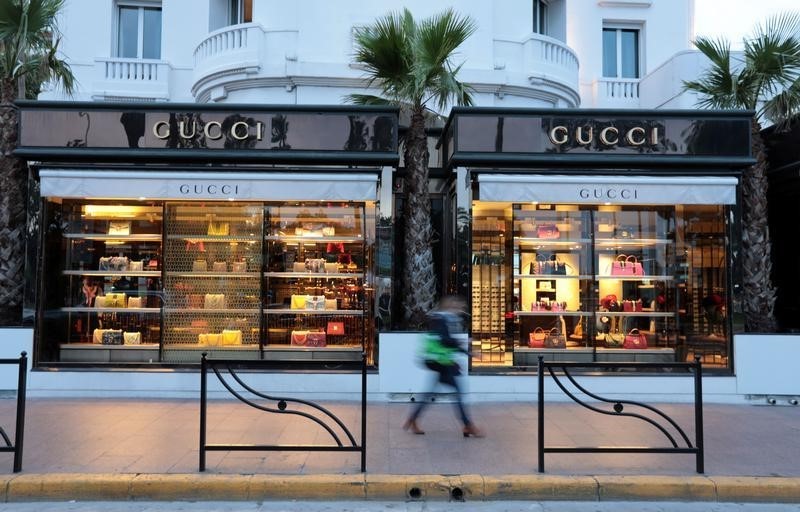Investing.com — As 2025 approaches, the question looms as to whether Gucci will regain its position as the leader in the luxury sector.
Analysts at UBS are skeptical about such prospects, citing a challenging market context and ongoing problems within the parent company. Kering (EPA:).
Gucci, which accounts for about 70% of Kering’s EBIT, has faced problems over the past five years, including declining sales and profitability.
Despite management’s efforts to revive the brand, the outlook for 2025 suggests it may not yet be Gucci’s time to shine.
The brand is forecast to experience a modest 1% decline in sales by 2025. While retail sales are expected to remain flat, the decline in wholesale volumes reflects a broader trend of subdued momentum.
Gucci’s EBIT margin is expected to decline to 19%, down slightly from the previous year.
This downsizing underlines the high costs associated with strategic initiatives, including those led by the new creative director, Sabato de Sarno.
UBS analysts note that while these measures are essential for long-term brand development, they are unlikely to deliver an immediate financial turnaround.
Adding to the challenges for Gucci is the broader economic environment, which has proven less favorable for brands targeting aspirational consumers.
Luxury sales in China, a crucial market, are expected to remain weak, with a projected decline of 3% in 2025.
In contrast, the US market is showing signs of recovery, with an estimated growth of 5%, but this recovery alone cannot compensate for Gucci’s ongoing problems.
Kering as a whole faces a difficult task in balancing brand investments with profitability. The group’s turnover is expected to grow by only 1% in 2025, while EBIT margins are expected to remain under pressure.
The company’s efforts to stabilize its finances, including possible store closures and a focus on free cash flow generation, reflect a cautious strategy amid uncertain conditions.
Analysts have also flagged risks that could further complicate Gucci’s trajectory. These include the possibility of another change in creative leadership and financial pressure from Kering’s other commitments, such as a €4 billion put option on Valentino.
Both factors could weigh heavily on the group’s balance sheet and its ability to allocate resources effectively.


